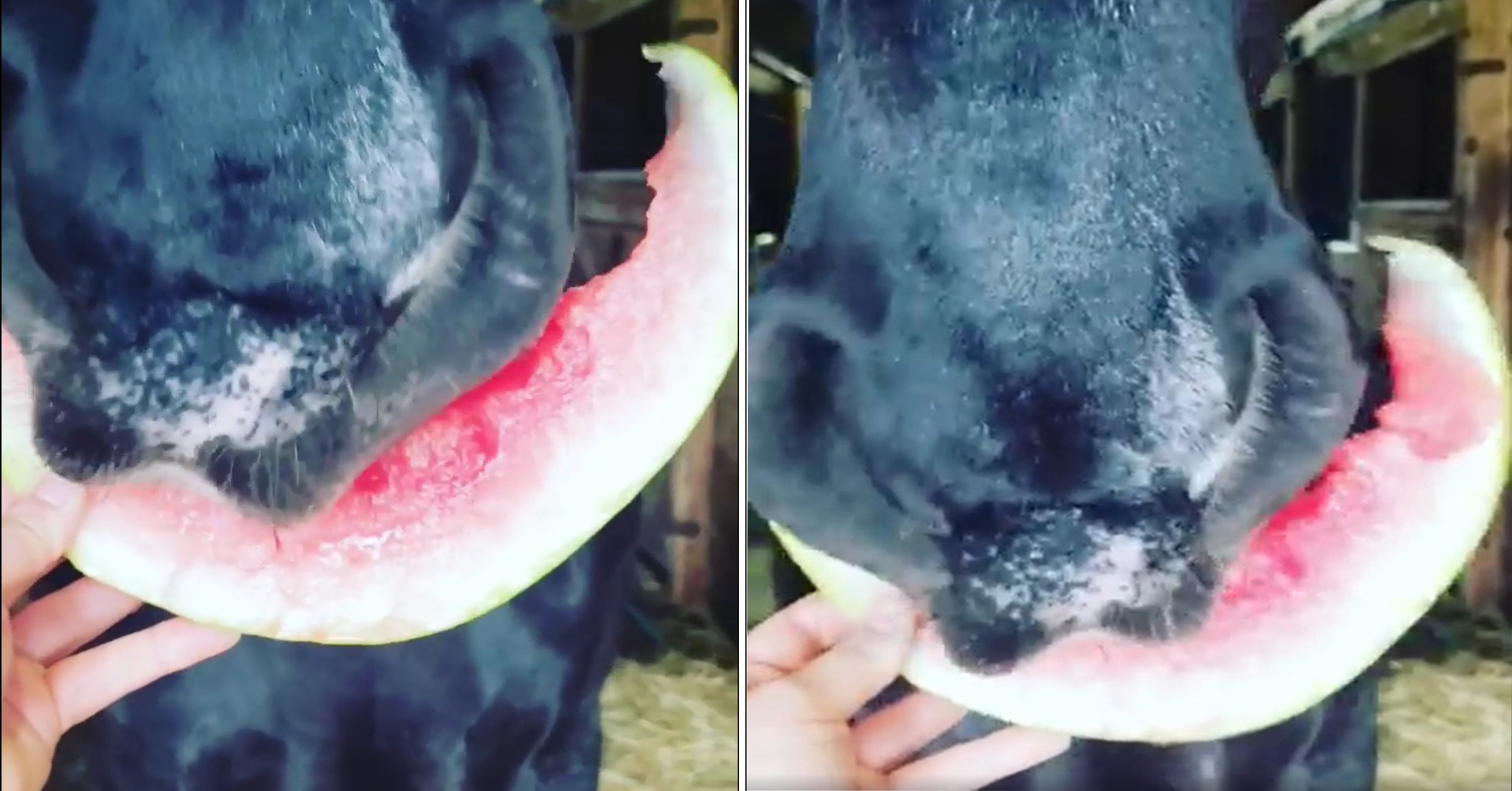Most horses enjoy eating occasional treats, but finding a healthy choice that they love can be challenging. Some fruits and vegetables that we love can also be healthy treat alternatives for horses. You may not have thought of it, but watermelon could be a treatment option for your horse.

Watermelons are a favorite treat during hot summer days. It’s pretty natural to want to share a treat with your friends; like in the video, the owner of this horse shares his portion of watermelon with his horse friend. While rinds don’t taste that great to us (unless you pickle them or cook them in a stir-fry), your horse will probably crunch them down with zeal. But are those watermelon rinds safe for your horse to eat? The answer is yes. In small quantities, watermelon rind is fine. Your horse can eat the ripe part, too, seeds and all. Some may not like melon, while others will be wild about it.
You might think that the water content of watermelon means that other than being a refreshing snack, it doesn’t have any benefit; after all, how can something that is around 90% water contain any goodness at all but this isn’t the case. Watermelons can be a surprisingly healthy treat for your horse and course as a good source of liquid during the hot summer months.
Horses get potassium from forage, hay, and grass. Watermelon rind also provides potassium. Horses need potassium for their physiological well-being. Horses lose potassium when sweating and when they urinate. When a horse sweats excessively and eats a low forage diet, it’s at risk of suffering a potassium deficiency, resulting in serious physical ailments. Muscle weakness, fatigue, decreased appetite, and exercise intolerance is indications a horse has a deficiency of potassium. The best remedy for horses with low potassium is access to fresh grass, equine electrolytes, and watermelon rind.
Remember that your horse needs to enjoy this fruit in moderation. Overeating creates a high water content and makes him ignore his regular and well-balanced diet. Then he will become nutrient deficient in the long run.
The ideal and safe amount that you should feed your horse is about one pound of watermelon and less once or twice a week. Note to give him in the warm summer weather because this refreshing fruit has the high water content to cool him down.
<script>!function(r,u,m,b,l,e){r._Rumble=b,r[b]||(r[b]=function(){(r[b]._=r[b]._||[]).push(arguments);if(r[b]._.length==1){l=u.createElement(m),e=u.getElementsByTagName(m)[0],l.async=1,l.src=”https://rumble.com/embedJS/u7mqm”+(arguments[1].video?’.’+arguments[1].video:”)+”/?url=”+encodeURIComponent(location.href)+”&args=”+encodeURIComponent(JSON.stringify([].slice.apply(arguments))),e.parentNode.insertBefore(l,e)}})}(window, document, “script”, “Rumble”);</script>
<div id=”rumble_vdzt5p”></div>
<script>
Rumble(“play”, {“video”:”vdzt5p”,”div”:”rumble_vdzt5p”});</script>
